To Survive Pandemic Food Shortages, Venezuelans Go Back to the Land
We call it mango season. It happens every year in the dry season when the fruit starts falling from the trees, abundant and generous to those who are hungry. In Venezuela this past year, its arrival was particularly heralded, as the pandemic wore away even more access to basic necessities in a country racked by deepening poverty and crisis. The United Nations’ World Food Program reports that one-third of Venezuelans suffer from food insecurity. The pandemic has made us especially vulnerable to a battered economy. Fuel shortages are common and halt food distribution. Job opportunities do exist, but barely. Dollars are the king currency, and very few people earn in dollars.
During the mandatory confinement, as covid-19 struck, all commitments were suspended and life became quotidian. This was at the very beginning — and I had so much time that I sat with my dad in his garden to watch the grass grow (literally). Gradually the need to eat, provide and work shook us into a new awareness. Necessity forced us to reassess what tools were available for survival.
What everyone can count on is nature, with mango season among the gifts it provides. We depend more than ever on mangoes. Before the crisis there were too many and we threw them to the trash; now we gather them all up. The lucky among us who can afford sugar make mango jelly, and those with flour make mango crumble. People these days are also eating a lot of bananas, plantains and papayas, and using wild herbs to season simple meals like rice and beans and cornmeal arepas. We grow peppers in our backyards.
I made these images while walking on the streets of Caracas, the capital, and smaller towns. One thing I observed on my long trips was that most Venezuelans eat fewer than two meals a day. People awaken late in the morning so they can skip breakfast and go directly to lunch. Water scarcity has made us bathe in nearby rivers; water plants are not working to capacity. All of this speaks eloquently to the national mismanagement of resources, but also demonstrates how the people solve everyday problems through sheer will and creativity. This time, when the economy halted, as it so often does, we looked outside and understood that our only chance was to go back to our roots.
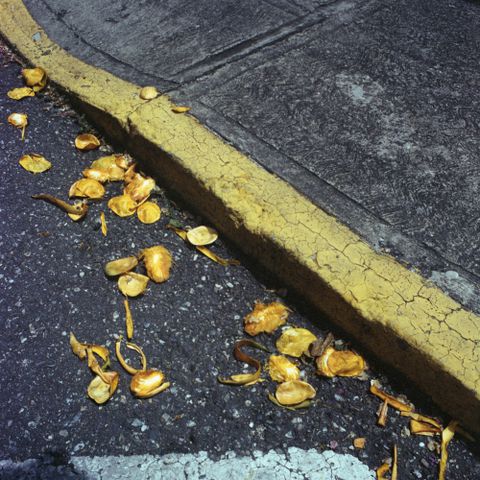 Mango peels and seeds on the streets of Caracas.
Mango peels and seeds on the streets of Caracas. Mango peels and seeds on the streets of Caracas.
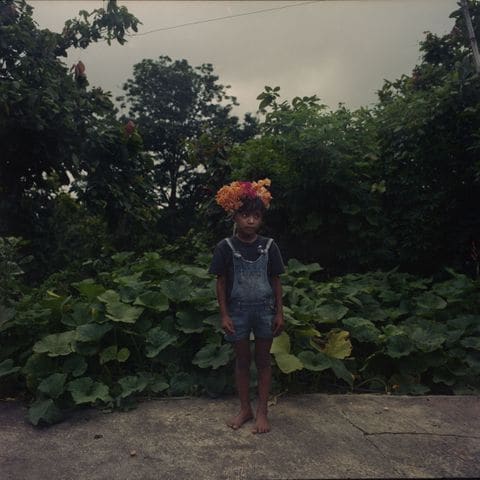 Freingi Flores, 7, wears a crown of flowers in Patanemo.
Freingi Flores, 7, wears a crown of flowers in Patanemo. 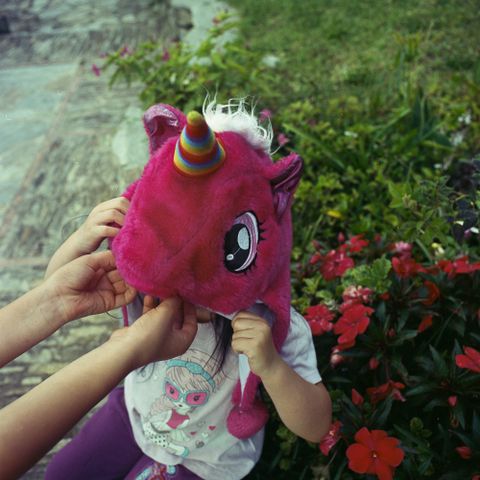 A girl fixes her sister’s hat in Galipan.
A girl fixes her sister’s hat in Galipan. 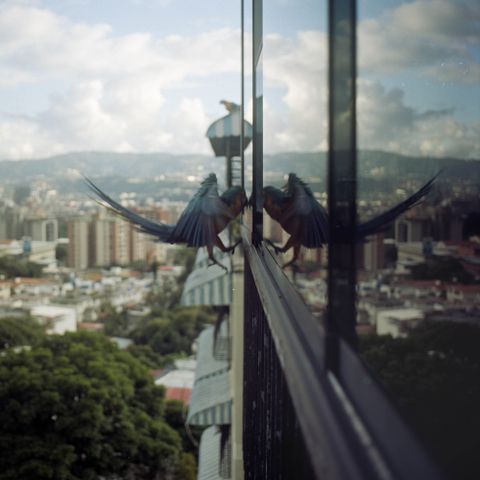 A macaw tries to fly into the photographer’s kitchen in Caracas.
A macaw tries to fly into the photographer’s kitchen in Caracas. 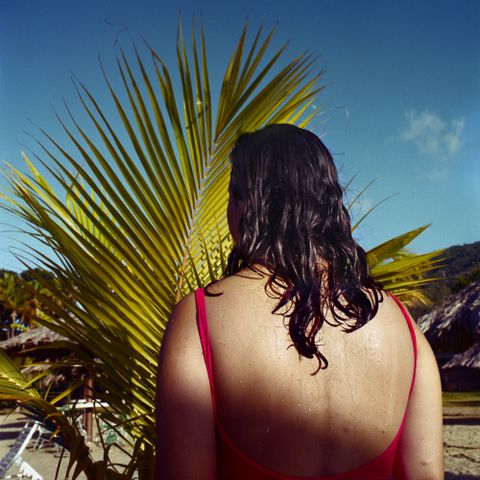 Sofia Monteverde after bathing in the sea in La Guaira.
Sofia Monteverde after bathing in the sea in La Guaira. Top: Freingi Flores, 7, wears a crown of flowers in Patanemo. Bottom row left to right: A girl fixes her sister’s hat in Galipan. A macaw tries to fly into the photographer’s kitchen in Caracas. Sofia Monteverde after bathing in the sea in La Guaira.
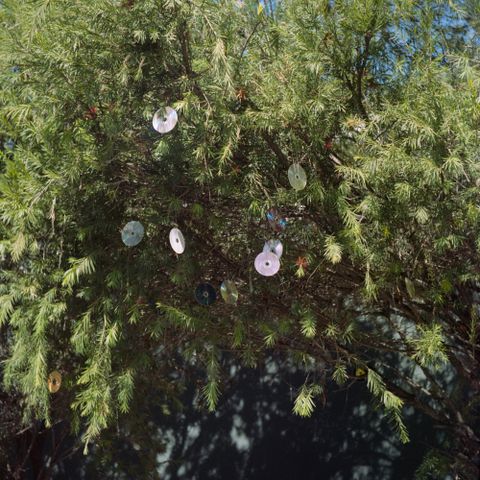 CDs hanging from a tree in Caracas.
CDs hanging from a tree in Caracas. CDs hanging from a tree in Caracas.
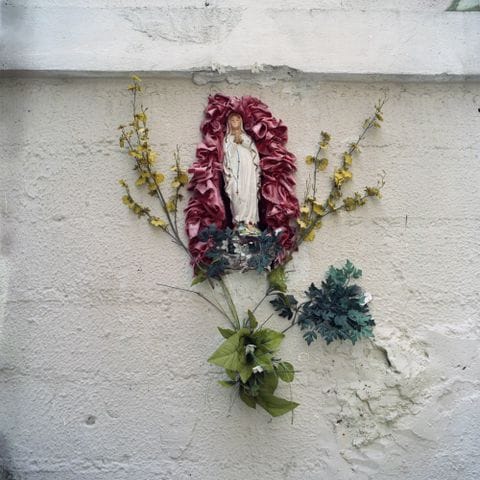 A statue of the Virgin Mary on a wall in Caracas.
A statue of the Virgin Mary on a wall in Caracas. 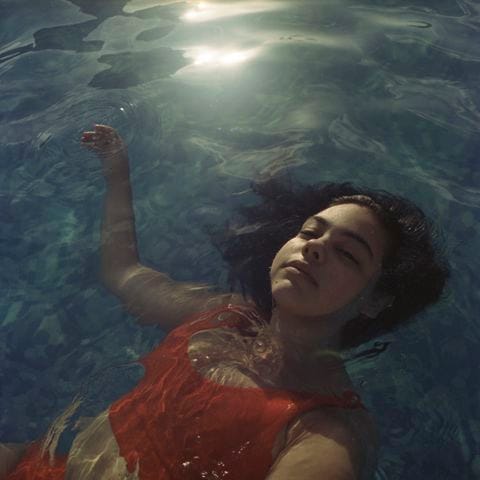 A friend of the photographer’s in a pool in Caracas.
A friend of the photographer’s in a pool in Caracas. 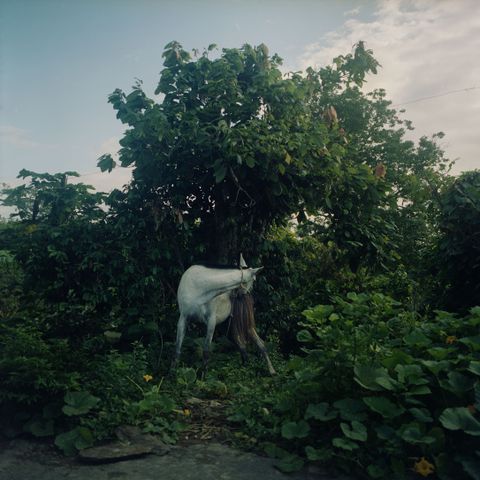 A horse takes a break from carrying cocoa beans on a family farm in Patanemo.
A horse takes a break from carrying cocoa beans on a family farm in Patanemo. Clockwise from top left: A statue of the Virgin Mary on a wall in Caracas. A friend of the photographer’s in a pool in Caracas. A horse takes a break from carrying cocoa beans on a family farm in Patanemo.
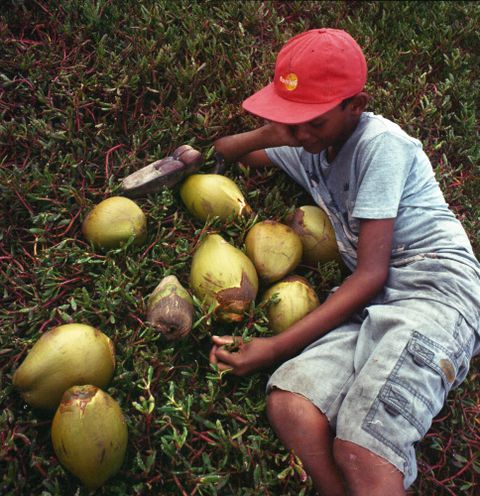 Alfonso, 10, counts coconuts before selling them at Playa Grande in Choroni.
Alfonso, 10, counts coconuts before selling them at Playa Grande in Choroni. Alfonso, 10, counts coconuts before selling them at Playa Grande in Choroni.
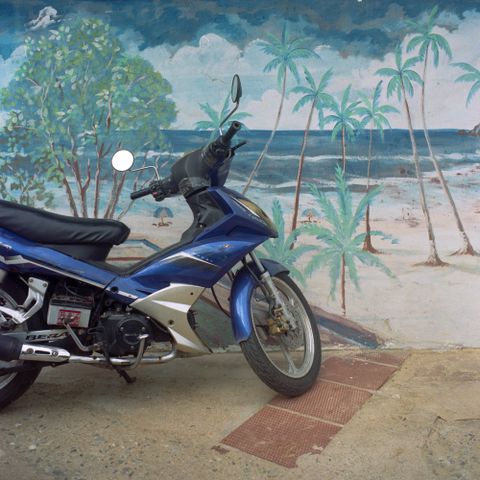 A motorcycle by a mural at Playa Grande in Choroni.
A motorcycle by a mural at Playa Grande in Choroni. 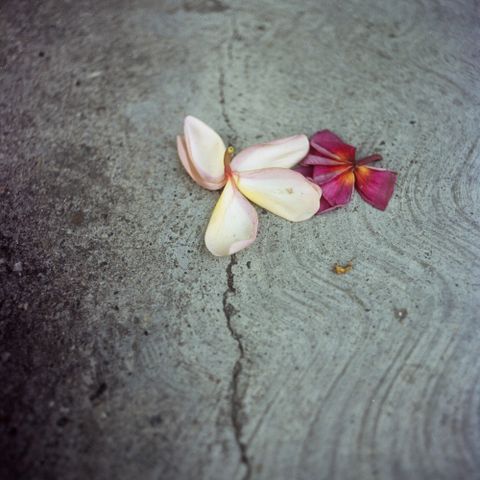 Flowers on the sidewalk in Caracas.
Flowers on the sidewalk in Caracas. 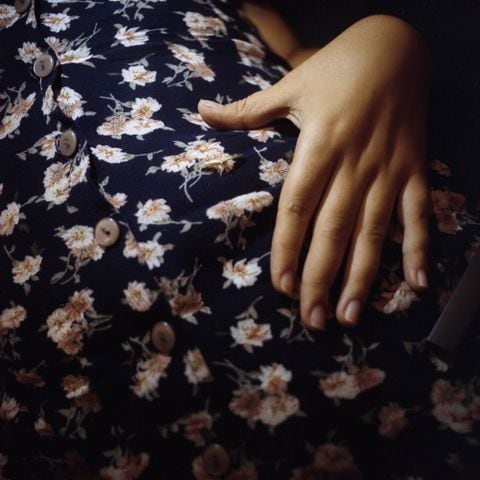 A moth lands on a friend’s belly in Caracas.
A moth lands on a friend’s belly in Caracas. 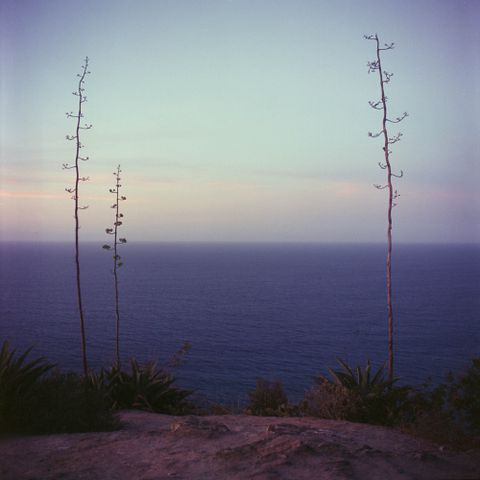 A view of the sea from a mountain in Choroni.
A view of the sea from a mountain in Choroni. Top row from left: A motorcycle by a mural at Playa Grande in Choroni. Flowers on the sidewalk in Caracas. A moth lands on a friend’s belly in Caracas. Above: A view of the sea from a mountain in Choroni.
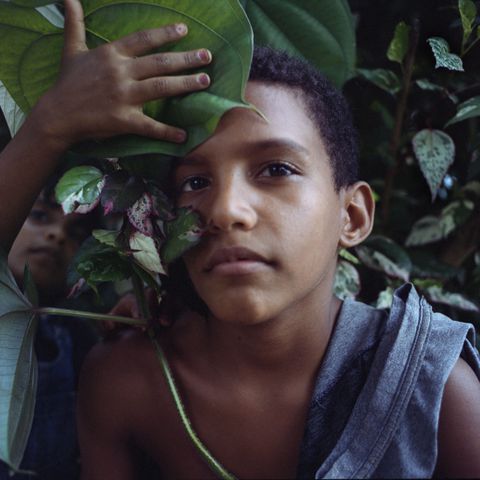 Luis Alfredo Flores, 11, on a cocoa farm in Patanemo. His family works the land.
Luis Alfredo Flores, 11, on a cocoa farm in Patanemo. His family works the land. Luis Alfredo Flores, 11, on a cocoa farm in Patanemo. His family works the land.
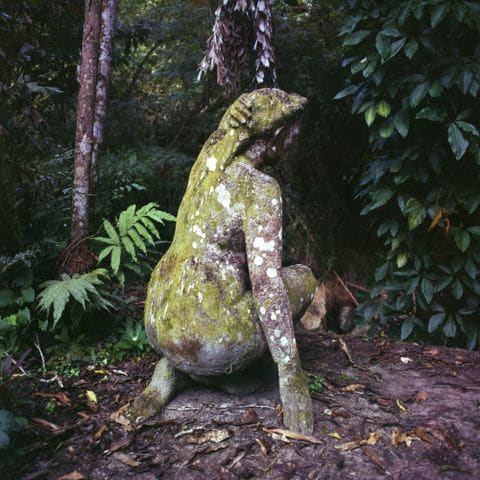 A statue in front of an art school in Choroni.
A statue in front of an art school in Choroni. 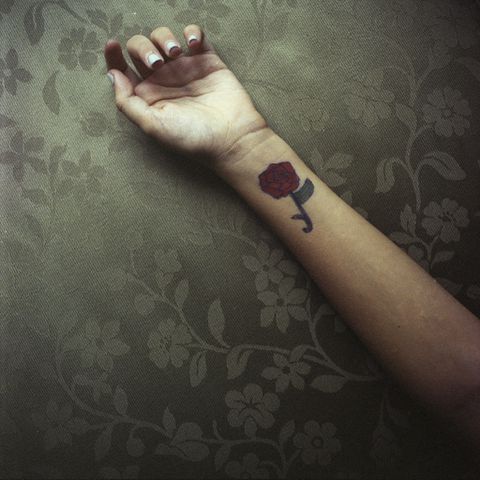 The photographer’s cousin shows her self-made tattoo.
The photographer’s cousin shows her self-made tattoo. 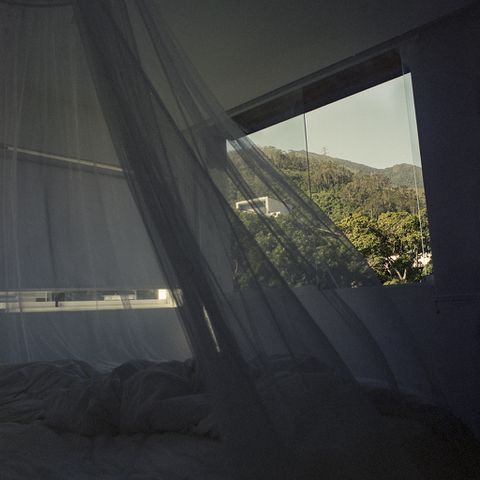 A mosquito net over a bed in the photographer’s apartment, which is surrounded by green.
A mosquito net over a bed in the photographer’s apartment, which is surrounded by green. Clockwise from top left: A statue in front of an art school in Choroni. The photographer’s cousin shows her self-made tattoo. A mosquito net over a bed in the photographer’s apartment, which is surrounded by green.
Andrea Hernández Briceño is a Venezuelan photographer and National Geographic Explorer based in Caracas. The project was completed with the support of the National Geographic Society’s Emergency Fund for Journalists.
Photo editing by Chloe Coleman. Design by Clare Ramirez.






